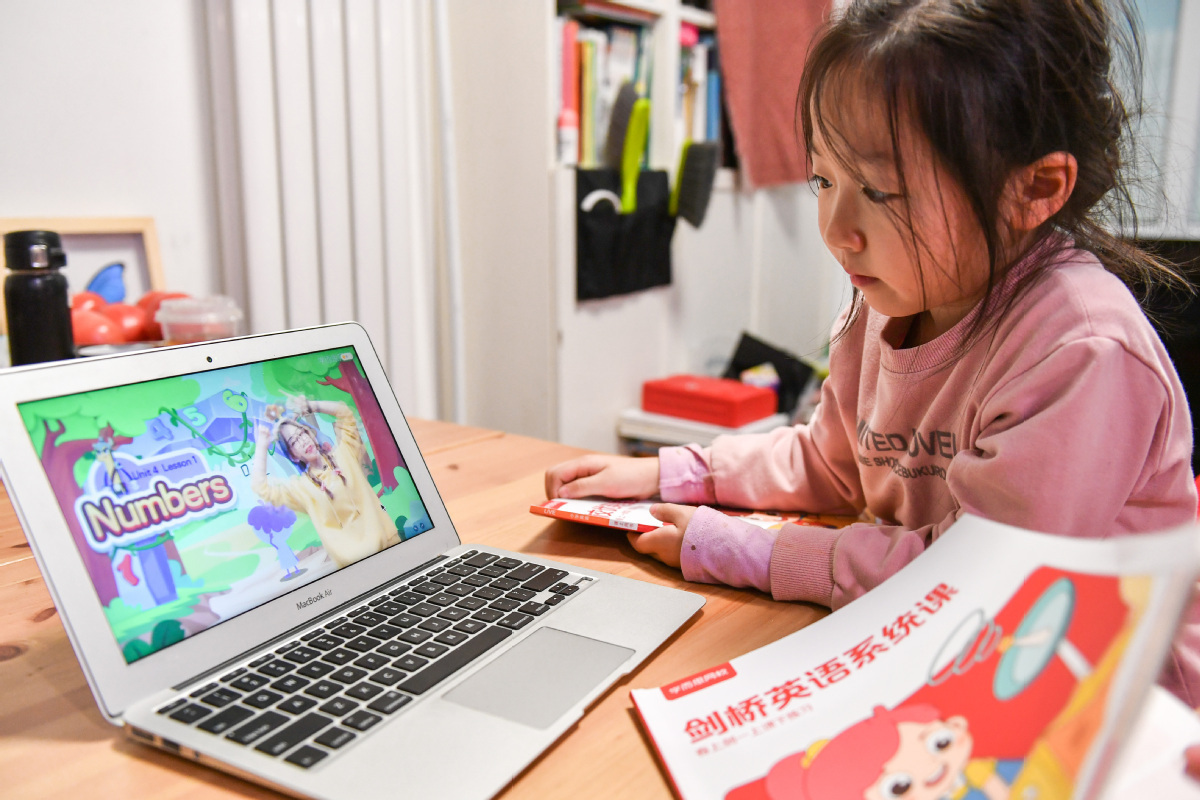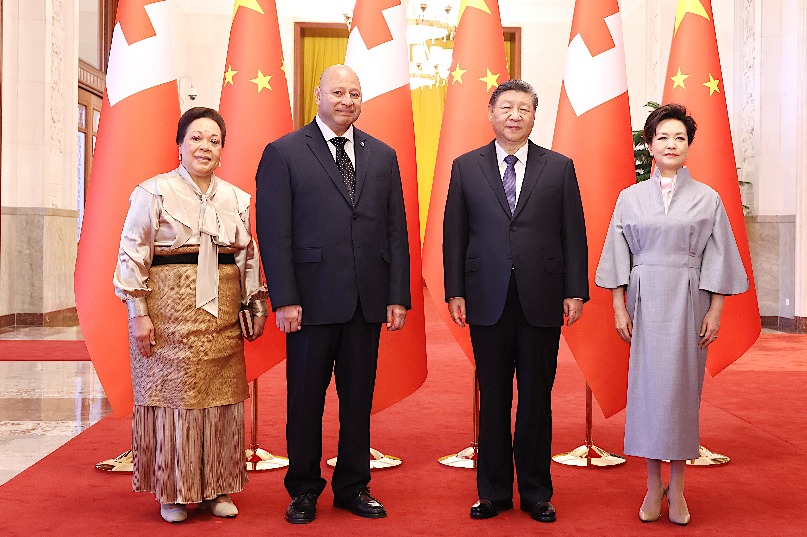Number of tutoring institutions plummets
By ZOU SHUO | CHINA DAILY | Updated: 2022-03-01 08:39

All 25 Chinese tutoring companies listed on stock markets at home or overseas no longer offer academic tutoring services to primary and middle school students following government efforts to alleviate students' academic workloads, according to the Ministry of Education.
An unnamed official with the ministry's department for supervision of after-school tutoring said the number of offline tutoring institutions for primary and middle school students has been slashed by 92 percent from 124,000 to 9,728 and online ones by 87 percent from 263 to 34.
All remaining tutoring institutions have been turned into nonprofit organizations and all of their prepaid tutoring fees, totaling 13 billion yuan ($2 billion), are under government supervision, the official said.
All provincial-level regions have released guidance rates for tutoring courses based on local conditions, and the rates have been decreased by more than 40 percent compared with those before the "double reduction" policy was introduced, he said.
According to the policy, which aims to reduce the amount of academic tutoring and lessen the homework burden faced by primary and middle school students, academic tutoring institutions are banned from going public for financing, and investment in them by listed companies and foreign capital is barred.
A recent guideline issued by the ministries of education and justice and the State Commission Office for Public Sector Reform said institutions and people caught seriously violating extracurricular tutoring regulations will face hefty fines and a lifetime ban from working in the education sector.
The official said "serious violations" are defined as national or cross-regional incidents that lead to significant impacts and grave danger, and "hefty fines" means one to five times their illegal gains.
The ministry is working on a new guideline on the specifics of administrative punishment, he added.
The double reduction policy also stipulated that academic tutoring companies for high school students should conform with the requirements for primary and middle school students.
The official said local governments are following the policy closely in regulating tutoring companies for high school students.
The Minors Protection Law stipulates that proper arrangements should be made for children's academic studies so that they have time for rest, leisure and physical exercise.
High schools should make efforts to meet the academic study demands of students and parents so children do not need to attend tutoring courses, the official said, adding that no school-organized tutoring courses are allowed during public holidays.
Zhang Ying, deputy director of Liaoning Provincial Department of Education, said the number of academic tutoring institutions for primary and middle school students in the province has fallen by 99.9 percent, and Shenyang, the provincial capital, now has no such institutions.
A grassroots supervision system for extracurricular tutoring consisting of subdistrict and community workers has been established, he said.
More than 300 community workers in a district in the city of Fuxin had used their cellphones to record violations, he added.
Lou Weimin, director of the Jinhua education bureau in Zhejiang province, said family expenditure on extracurricular tutoring in the city has been reduced by 91.8 percent from 904 million yuan to 83 million yuan.
To spur local governments into action, the city has ranked its counties and districts on their double reduction progress every month since October, he said.
The city has more than 6,000 community workers conducting daily inspections on illegal tutoring within their jurisdictions and they have reported more than 3,100 violations, Lou said.
It has also implemented a rating system for remaining tutoring institutions. Those who obtain four out of five stars are allowed to conduct after-school services at public schools, he added.
























